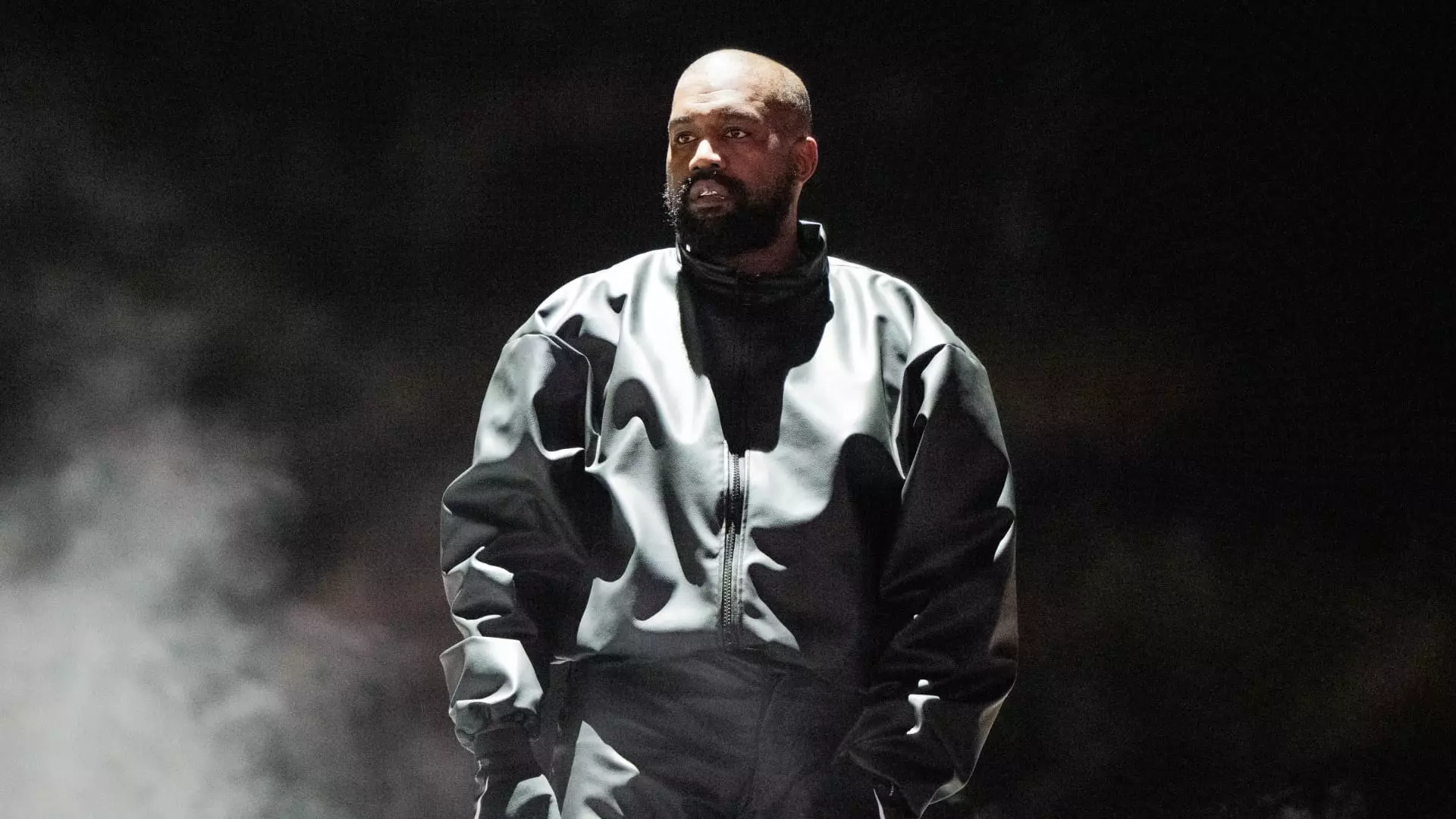In a surprising turn of events, a Chinese official revealed at a press briefing designated for significant policy updates that the well-known artist Ye, previously called Kanye West, is slated to host a “listening party” for his latest studio album, “Vultures,” on September 15, on the Chinese island of Hainan. This announcement has created waves among the youth in China, especially among fans like 33-year-old Ziteng Du, an office worker in Shanghai. Many have found it hard to believe that Ye, a figure often considered rebellious and controversial, would receive official sanction to perform in a country renowned for its strict cultural norms.
The juxtaposition of Ye’s reputation with the Communist Party’s rigid values raises eyebrows. Perceptions of him as an anomaly within China’s conservative framework have sparked discussions on social media platforms like Weibo, where fans have expressed disbelief and concern about the implications of such a decision. It has led some to ponder whether the government’s approval of Ye’s participation has deeper motivations, such as attracting international tourism and enhancing the country’s global image.
Hainan, often referred to as the “Hawaii of China,” is undergoing a transformation in its tourism strategy. With its previous heavy reliance on domestic tourists, the island recognizes the necessity to broaden its appeal to international travelers. Over the last decade, the tourism sector has become a vital pillar of Hainan’s economy, generating an impressive 181 billion yuan ($25.5 billion), which accounts for about 24% of the island’s GDP. However, as domestic travel has shown signs of stagnation, and international visitor numbers dwindle—contributing a mere 0.87% of total tourists in early 2024—the local government faces mounting pressure to revitalize its economy.
Michael Zhou, the founder of Jingjian, a consultancy focused on Chinese tourism, argues that the invitation to Ye signifies a calculated risk by local authorities to boost Hainan’s international profile. Indeed, this endeavor aligns with a broader national strategy to elevate Hainan’s status as a sought-after tourist destination. The government’s economic aspirations are palpable, particularly as they aim for a staggering 207 billion yuan in tourism income, projecting a 14% rise from 2023.
However, the risks associated with hosting an artist like Ye are evident. While his unique brand may attract a new demographic of international visitors, there is palpable pushback from conservative factions within the nation, with some netizens voicing their discontent regarding Ye’s artistic and social values.
Hainan’s dependence on tourism revenue has intensified as other sectors falter. The island’s once-booming duty-free market has seen alarming declines, marked by an 11% drop in shoppers and a staggering 30% reduction in duty-free sales in the first half of 2024. Charlie Chen of China Renaissance underscores the inevitability of this decline, given that Hainan is the largest duty-free channel in the country. Even affluent consumers are tightening their spending, a reflection of broader economic anxieties in China.
In response to these trends, Hainan’s government has strategically framed Ye’s upcoming event as a mechanism for reinvigorating interest in the island’s tourism offerings. Following a governmental policy to provide financial incentives to organizations hosting international music events, the move to bring Ye to Hainan reflects an ambition to harness the concert economy as part of the recovery process.
This shift can be seen as part of Hainan’s larger initiative to leverage its geographical advantages and visa-free policies to attract high-profile music events, ultimately positioning itself as a pivotal stop in international artists’ tours.
While Ye’s global notoriety may carry significant baggage, his positions on various issues might resonate differently in China, particularly in light of recent geopolitical tensions. His rise in popularity during the pandemic and his past comments praising the country suggest a complex relationship between the artist and his potential Chinese audience. Unlike the backlash he faced in other countries due to his controversial remarks, the current political landscape in China—shaped by a surge in anti-Israel sentiment—may provide a protective sphere for Ye.
The local populace appears more preoccupied with cultural and economic ramifications than with Ye’s previous controversies. As Du notes, citizens may be willing to overlook these elements, focusing instead on the potential economic and cultural benefits accompanying his performance. This sentiment underscores a crucial aspect of China’s entertainment landscape: the balancing act between international celebrity influence and domestic political considerations.
As the date of the listening party approaches, the eyes of the nation remain sharply focused on Hainan, where the intersection of art, tourism, and cultural values will likely play out in unprecedented ways. The potential outcomes of this event could redefine both Hainan’s historical narratives as a tourist destination and the broader discourse surrounding artistic expression in a controlled society.


Leave a Reply